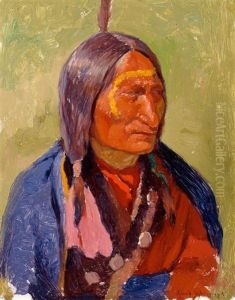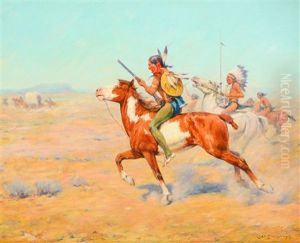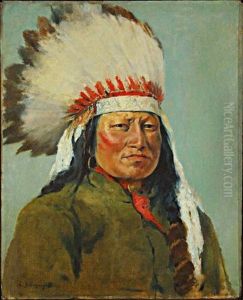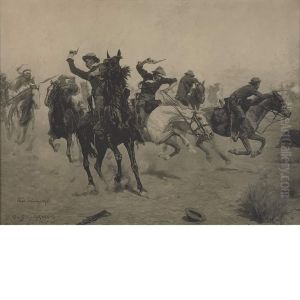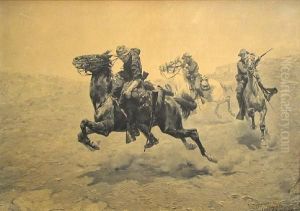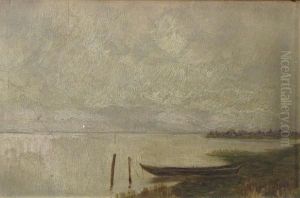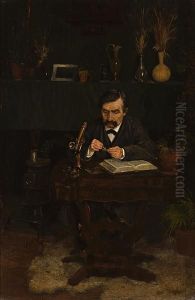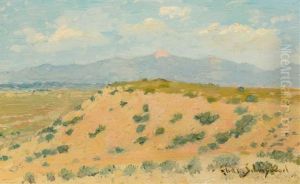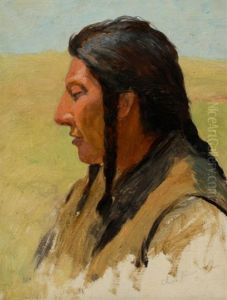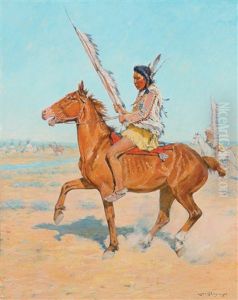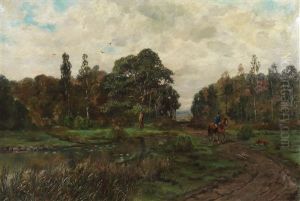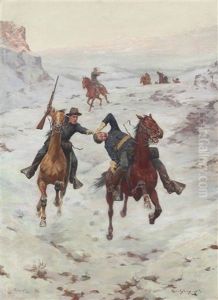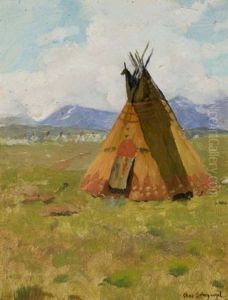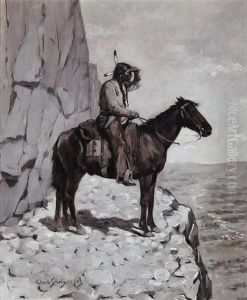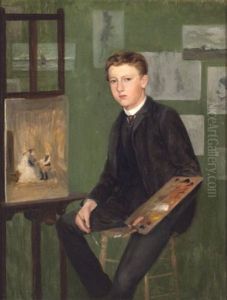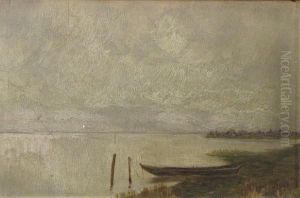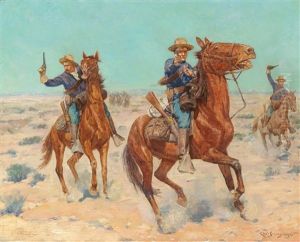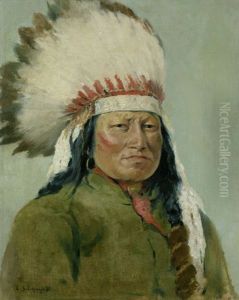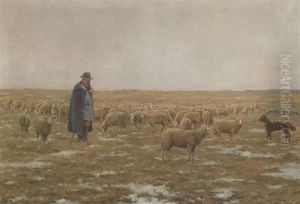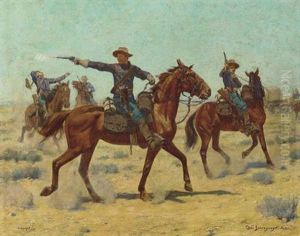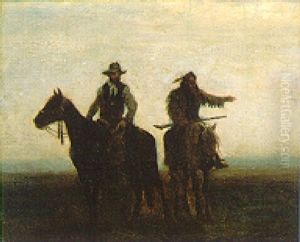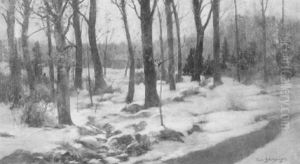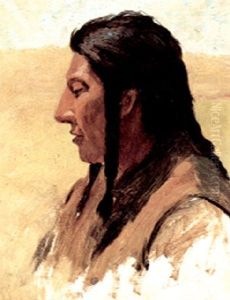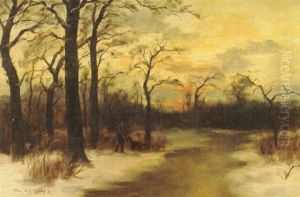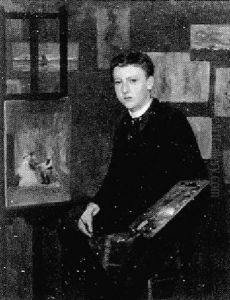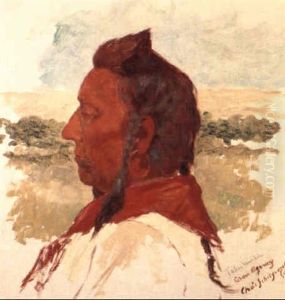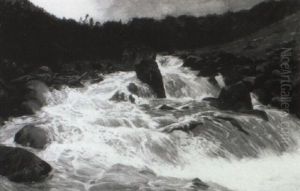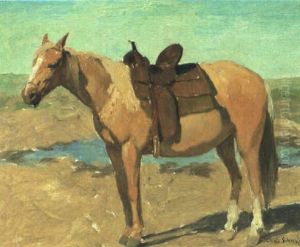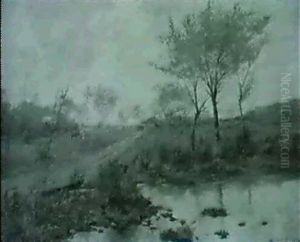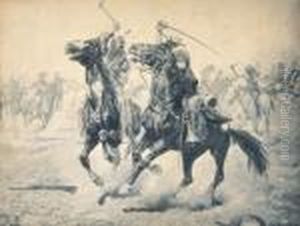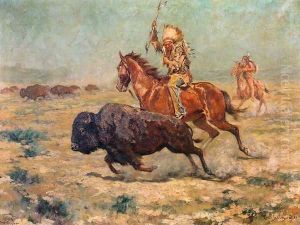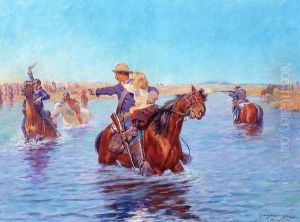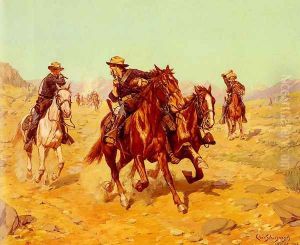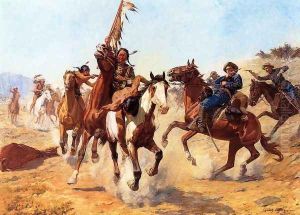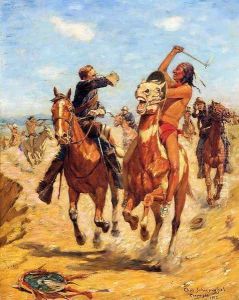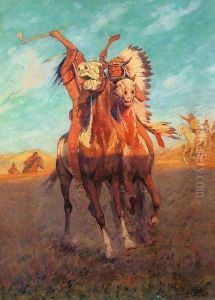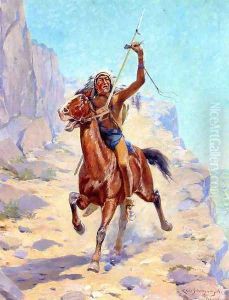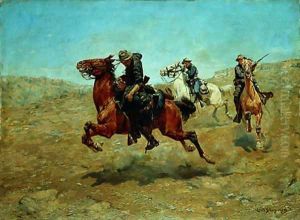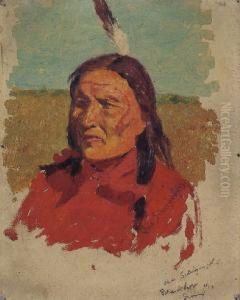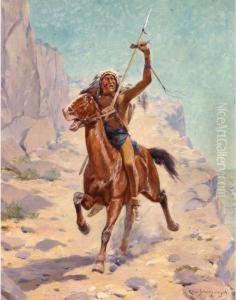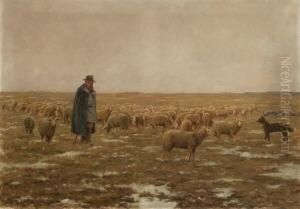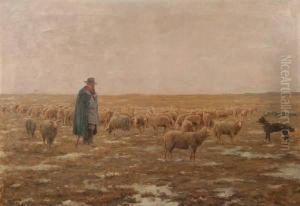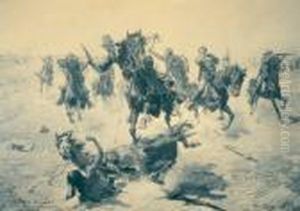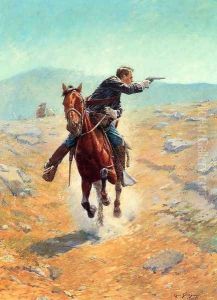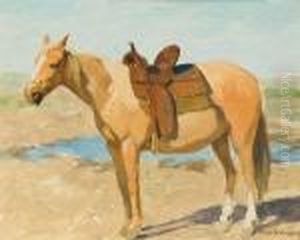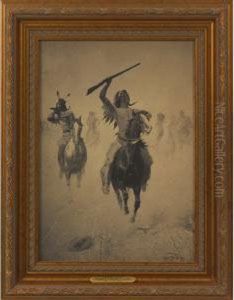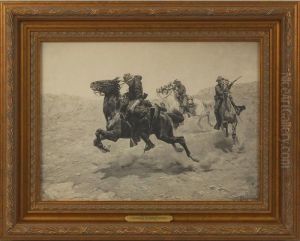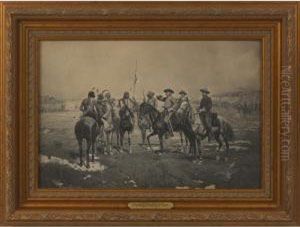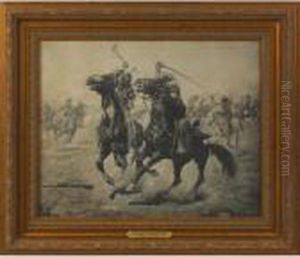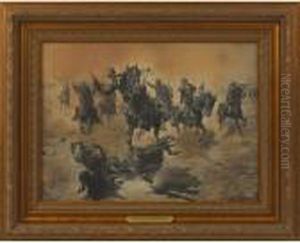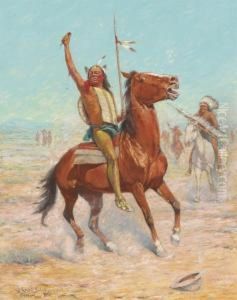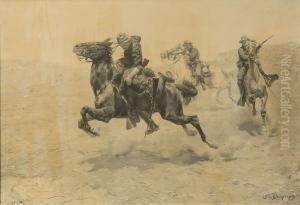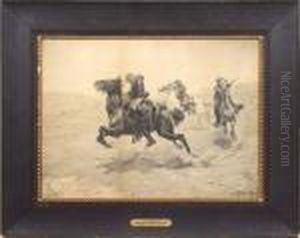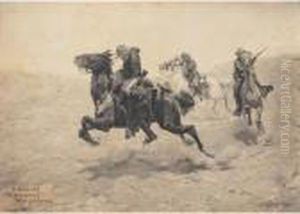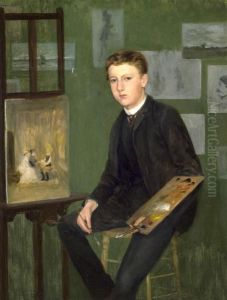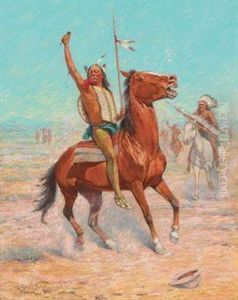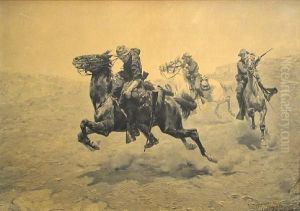Charles Schreyvogel Paintings
Charles Schreyvogel was an American painter of Western subject matter in the days of the disappearing frontier. Born in New York City on January 4, 1861, Schreyvogel was the son of immigrants and grew up in a working-class environment. His interest in art began at an early age, but his initial career path led him to various jobs, including as a jeweler's assistant, to support his family.
Despite the financial challenges, Schreyvogel's passion for art drove him to pursue his artistic education. He studied at the Cooper Union for the Advancement of Science and Art in New York and later at the Munich Academy in Germany, which was a significant center for art training at the time. His time in Munich was pivotal as it exposed him to a rigorous academic approach to painting and the influence of European salon-style art.
After returning to the United States, Schreyvogel focused on the American West as his primary subject matter. His breakthrough came with the painting 'My Bunkie,' which won the Thomas B. Clarke prize at the National Academy of Design in 1900. This painting depicted a scene of camaraderie between a cavalry soldier and his horse, capturing the essence of frontier life with authenticity and dramatic effect.
Schreyvogel's commitment to authenticity in his depiction of the West was notable. He made several trips to the western United States to research, sketch, and photograph the landscape, people, and customs of the region. His dedication to detail extended to collecting authentic clothing, weapons, and other artifacts to use as reference for his paintings.
Despite his relatively short career, Charles Schreyvogel made a significant impact on the genre of Western art. His works were celebrated for their dynamic composition, accurate portrayal of the West, and the ability to convey the rugged life of cowboys and soldiers. His paintings have been displayed in major museums and collections and continue to be appreciated for their contribution to the romanticized vision of the American West.
Schreyvogel's career was unfortunately cut short by illness, and he died on January 27, 1912, in Hoboken, New Jersey, at the age of 51. His legacy, however, lives on through his evocative works that capture the spirit of an era that has long since passed into legend.
